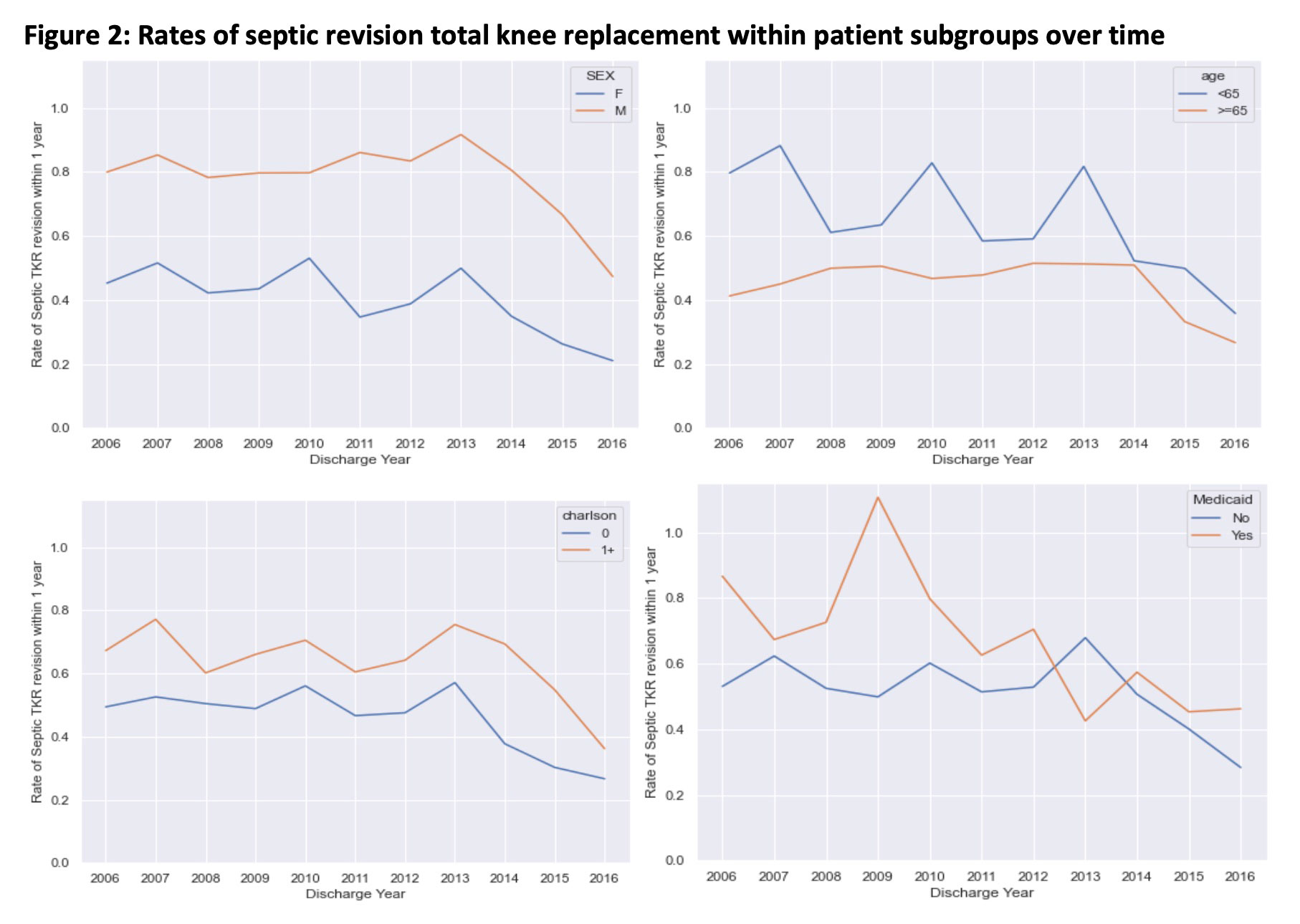Session Information
Session Type: Poster Session B
Session Time: 9:00AM-10:30AM
Background/Purpose: Prosthetic joint infection (PJI) is a dreaded complication of total knee replacement (TKR) that usually requires removal of the prosthesis, treatment with antibiotics and then placement of a new TKR. Prior to 2004, the rate of PJI was rising, perhaps because sicker and more at-risk patients began to undergo TKR. This study examined the annual rate of PJI since the introduction of mitigation strategies, such as patient health optimization, skin decolonization, intra-operative anti-septic solutions, enhanced wound closure devices, and reduced blood transfusion protocols, to determine if the PJI rate has decreased over time.
Methods: This was an observational cohort study. New York Statewide Planning and Research Cooperative System data was used to identify patients who underwent unilateral primary TKR from 2006 to 2016. Data through 2017 was used to determine if patients had revision TKR (R-TKR) within 1 year of primary TKR. ICD-10-CM codes were used to classify R-TKR indication as septic or not septic. Annual hospital TKR volume was generated and categorized as ≤89, 90-235, 236-644 or ³645 based on Wilson et al,1 Descriptive statistics were reported as frequency (percent) and chi-squared tests were used to compare patients having septic R-TKR to those not revised or having revision for another indication. We calculated rates of septic R-TKR by year of primary surgery and visualized using bar and line graphs.
Results: There were 233,165 patients included in the analysis. Mean (SD) age was 66.1 (10.3) years, 64.8% were female and 76.5% were white (Table 1). In univariable analysis, patients of younger age or male sex and those who had higher comorbidity burden, inflammatory arthritis, Medicaid insurance or underwent their primary TKR at a low TKR volume hospital had higher likelihood of septic R-TKR. The incidence of septic R-TKR declined in the years after 2014 (Figure 1). The decline in the rate of septic R-TKR starting in 2014 was similar across hospital TKR volume categories and patient characteristics associated with septic R-TKR, including sex, age, comorbidity burden and Medicaid insurance (Figure 2).
Conclusion: Rates of septic TKR revision remained relatively stable from 2006 to 2013 but declined from 2014 to 2016. This decline was similar across categories of patient and hospital characteristics associated with the likelihood of septic R-TKR and could be the result of new infection mitigation strategies. Extending the analysis to additional years of data and to additional states will help to determine whether this trend has been sustained and whether these results are generalizable.
1Wilson S. J Bone Joint Surg Am. 2016;98(20):1683-1690.
To cite this abstract in AMA style:
Bass A, Zhang, Y, Sculco P, do h, Glaser K, Carli a, Figgie M, Goodman S. Temporal Trends in Prosthetic Joint Infection [abstract]. Arthritis Rheumatol. 2022; 74 (suppl 9). https://acrabstracts.org/abstract/temporal-trends-in-prosthetic-joint-infection/. Accessed .« Back to ACR Convergence 2022
ACR Meeting Abstracts - https://acrabstracts.org/abstract/temporal-trends-in-prosthetic-joint-infection/



